Global billionaires boom to new record, USA leads pack
The U.S. accounted for 29% of the global billionaire population and 37% of cumulative billionaire wealth in 2020
Dan Henninger: Democrats reduced to spending money regardless of policy
Wall Street Journal Editorial Page deputy editor reacts to the president campaigning for Gavin Newsom in California on 'Fox Business Tonight'
Billionaires are booming all over the globe but the United States holds the crown for the most dynamic growth and significant wealth gains.
US TO GIVE AIRCRAFT COMPANIES $482M FOR PANDEMIC
According to Wealth-X's 2021 billionaire census, the total number of billionaires in 2020 jumped 13.4% year-over-year to 3,204 individuals. The figure marks the strongest annual growth since 2017, despite the impact of the COVID-19 pandemic and the deepest contraction in world economic output in a generation. Together, their combined wealth hit $10 trillion, a year-over-year increase of 5.7%.
The United States is the most dominant country for billionaire growth, accounting for 29% of the global billionaire population and 37% of cumulative billionaire wealth in 2020, followed by China with shares of about 13% and Germany with shares of about 5%.
Out of the total 3,204 individuals, 670 of them were new billionaires with a median wealth of $1.9 billion and $1.4 billion, respectively.
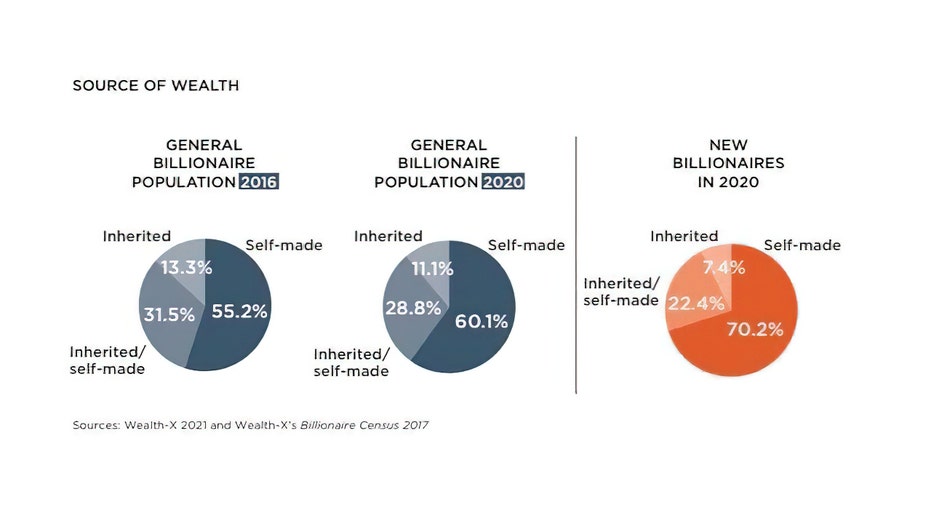
Approximately 60% of the overall billionaire population in 2020 were completely self-made, compared to 11% who made their fortunes through inheriting money and 28.8% who made their fortunes through a combination of inheritance and self-made wealth creation.
For new billionaires, roughly 70% are self-made, compared to 7.4% who inherited their fortune and 22.4% who have a combination of inheritance and self-made wealth creation.
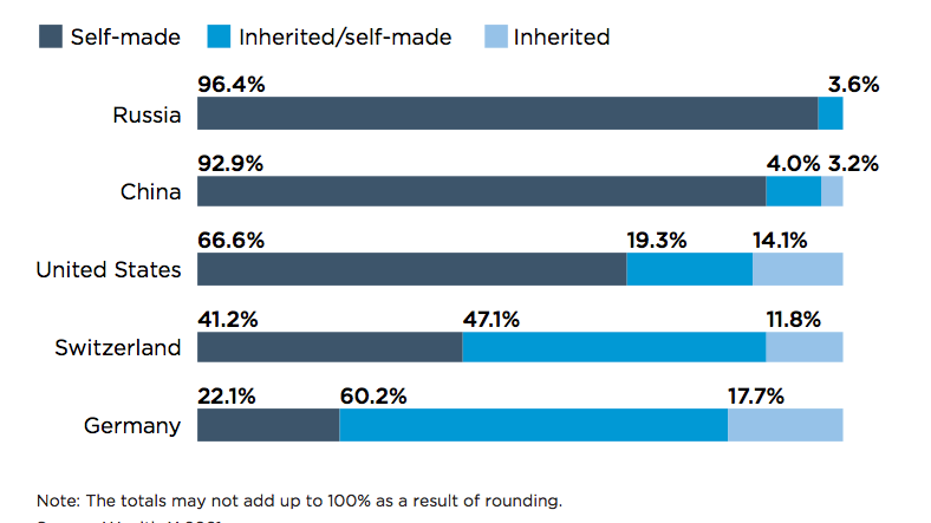
In the United States, 66.6% of billionaires were self-made, while 14% made their fortunes through inheritance and 19.3% made their fortunes through inheritance and self-made wealth creation.
GET FOX BUSINESS ON THE GO BY CLICKING HERE
In North America alone, the number of billionaires grew by 17.5% year-over-year to 980 individuals, equivalent to a 31% global share. Meanwhile, the collective net worth of the region's billionaires rose by 8% to $3.8 trillion, or a global share of 38%.
The total number of billionaires with wealth in the range of $10 billion to $50 billion saw the strongest growth in terms of both population and combined net worth, growing by 40%, or three times faster than the growth of the overall billionaire population.
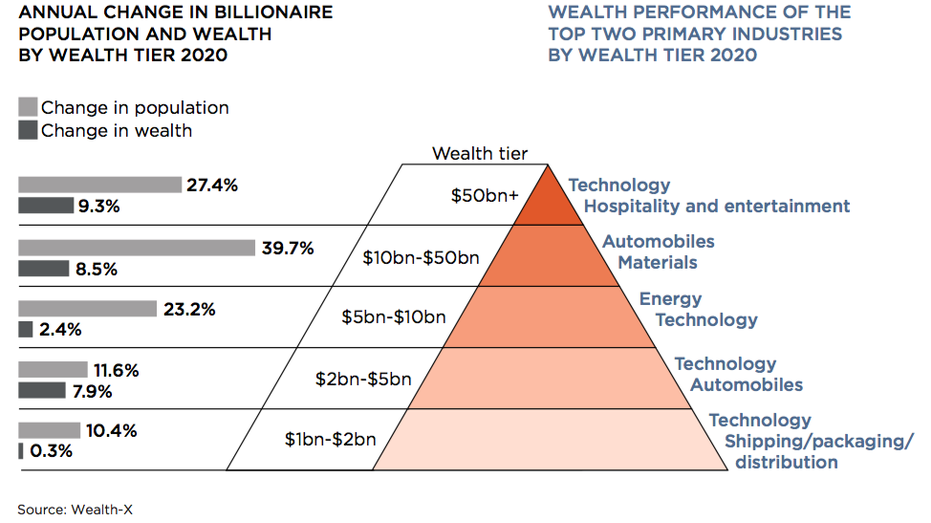
The expansion was driven by wealth generation in the automotive, technology, materials and shipping and distribution industries. In addition, the hospitality and entertainment sector gave a boost to the total number of billionaires with wealth of more than $50 billion.
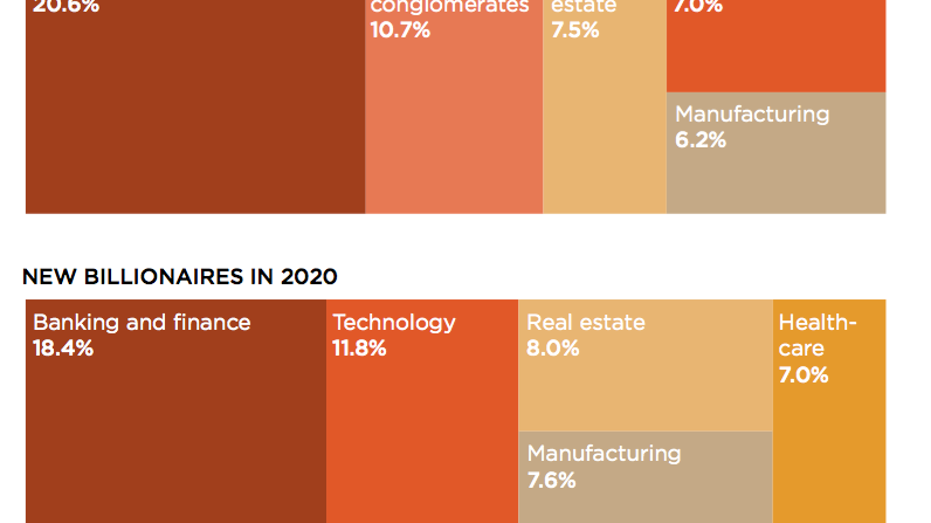
However, the banking and finance sector remained the top industry for overall billionaire representation.
CLICK HERE TO READ MORE ON FOX BUSINESS
The top tier of 19 ‘super billionaires’ registered the second-highest growth in population size of 27% and the strongest growth in combined net worth of 9.3%. As of July 2021, the 15 wealthiest billionaires were:
Super Billionaires
- Former Amazon CEO Jeff Bezos (201.2 billion)
- Tesla CEO Elon Musk ($181.1 billion)
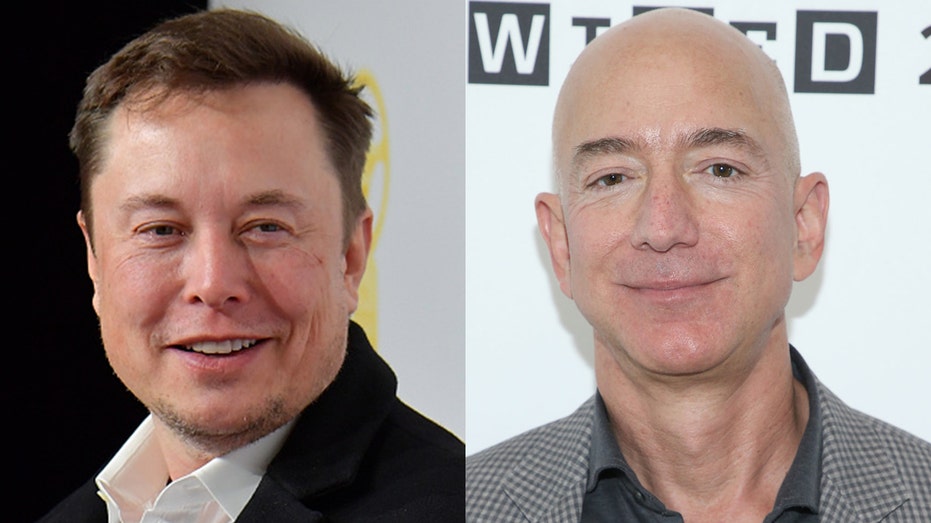
- LVMH Moët Hennessy chairman and CEO Bernard Arnault ($154.4 billion)
- Microsoft co-founder Bill Gates ($142.4 billion)
- Facebook CEO Mark Zuckerberg ($137.4 billion)
- Google co-founder Sergey Brin ($127.7 billion)
- Google co-founder Larry Page ($126.7 billion)
- Microsoft CEO Steve Ballmer ($110.5 billion)
- Berkshire Hathaway chairman and CEO Warren Buffett ($104.2 billion)
- Oracle CEO Larry Ellison ($94.3 billion)
- Reliance Industries Limited chairman and managing director Mukesh Ambani ($84.6 billion)
- Inditex fashion group founder Amancio Ortega ($80.5 billion)
- Walmart heirs Jim Walton ($76.3 billion), Alice Walton ($74.7 billion) and Rob Walton ($72.7 billion)
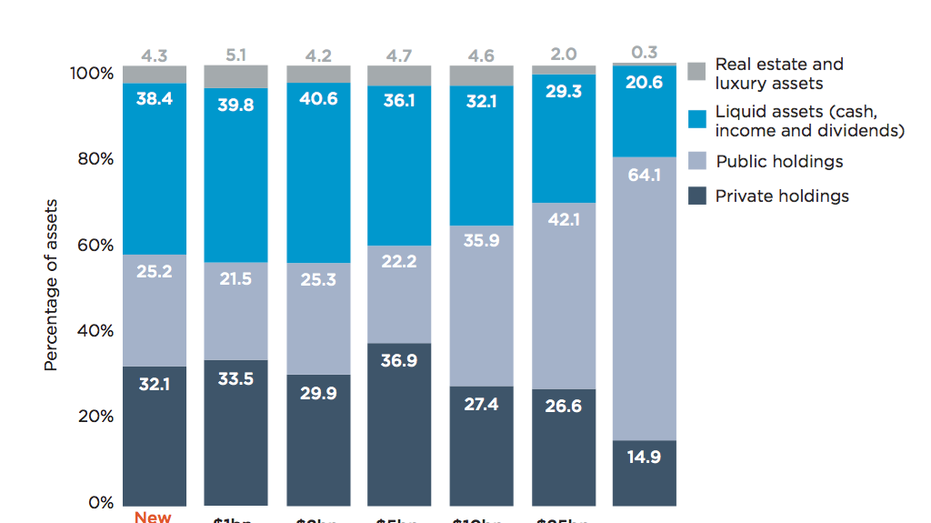
Billionaires with a net worth above $50 billion have almost two-thirds of their assets in public holdings (64.1%), compared to the share of around 20% of those with a net worth between $1 billion and $2 billion. As for new billionaires, the majority of their wealth is in liquid assets (38.4%), followed by public holdings (32.1%) and private holdings (25.2%).





















